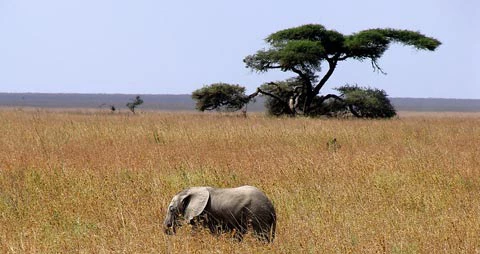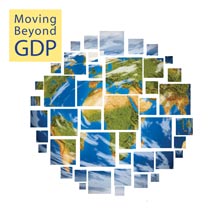We’ve all seen what happens when natural capital is undervalued. Oceans that billions of people rely on for food and income get overfished and become dumping grounds for chemicals and waste. Mangroves that protect shorelines from storms are replaced with resorts.
Many countries are looking beyond GDP to help them address the challenges undervaluing natural capital has created. What they need is a measure of a country’s wealth that includes all of its capital — produced, social, human, and natural capital.
In Botswana at the Summit for Sustainability in Africa this afternoon, 10 African countries endorsed the need to move toward factoring natural capital into systems of national accounting. By Rio +20, the upcoming UN Conference on Sustainable Development, we hope to see 50 countries and 50 private corporations join this effort.
Africa has several examples of natural capital accounting already at work.
Botswana is piloting water accounts that its government is using to determine how much water each sector of the economy is consuming and where that limited resource is possibly being overused. Knowing that information can help the government weigh economic tradeoffs and create effective incentives for water efficiency.
Biodiversity-rich Madagascar wants to know how to finance more than 60,000 square kilometers of protected areas. Natural capital accounting can help the country calculate the value of the forests in their entirety.
In all, at least 24 counties are using some form of natural capital accounting. For many low-income countries, natural capital is a critical asset that makes almost 36 percent of their total wealth.
We’ve been talking about natural capital accounting for years, but until a few months ago, there wasn’t an agreed methodology to move it forward. That changed when the UN Statistical Commission approved the System for Environmental and Economic Accounts. SEEA provides methods for countries to account for natural resources like minerals, timber, and fisheries. The next step is to expand natural capital accounting to cover ecosystem services like the storm protection provided by mangroves.
A recent study of mangroves in Thailand shows what a different this knowledge can make. When you look at just the timber value of the mangroves, they are valued at around $955 per hectare. Replacing them with shrimp farms would return around $11,000 per hectare. So, conventional economics would favor conversion to shrimp farming. But when you factor in the mangroves’ critical role as storm and flood barriers, their value rises to over $20,000 per hectare. If this information and this kind of thinking been active earlier, the large swathes of mangroves around the Gulf of Thailand that were destroyed for shrimp farming and coastal development, might still be intact.
We just released a report to help demystify the concept of natural capital accounting. To help countries overcome the challenges they face in undertaking natural capital accounting, the World Bank also recently launched the Wealth Accounting and the Valuation of Ecosystem Services partnership, or WAVES. It includes UN agencies, national governments, NGOs, institutions, and developed and developing countries — Australia, France, the Netherlands, Norway, Spain, Botswana, Colombia, Costa Rica, Madagascar, and the Philippines. The government of Japan just committed $US3 million to strengthen a partnership that is helping countries value their natural capital.
As we head to Rio, we are seeing increasing interest from ministers of finance in the idea of complementing GDP with a measure that better reflects their countries’ natural assets.
We expect to see that interest grow.
Rachel Kyte
Vice President for Sustainable Development
www.worldbank.org/sustainabledevelopment
Twitter: @rkyte365




Join the Conversation